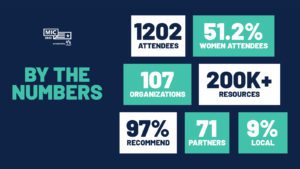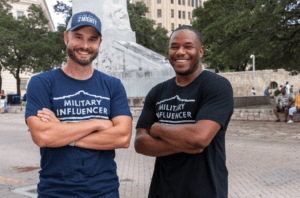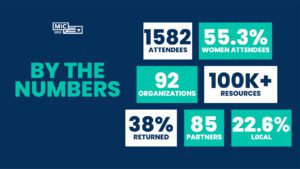
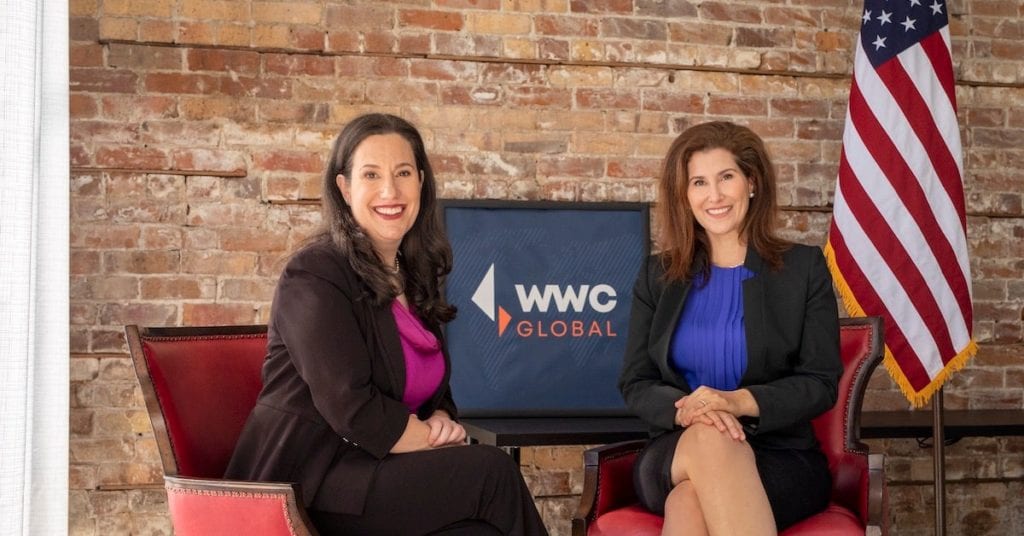
Transitioning into government contracting
- by
- Lauren Weiner and Donna Huneycutt, WWC Global
Make no mistake, however, government contracting is complicated, and the barriers to entry are extremely high and continue to get higher. There are some great success stories out there, but for every story you hear about, there are likely 10 more stories that you are not hearing.
Regulations around government contracting are complex and high-stakes; getting it wrong can be catastrophic to a small business. Most small firms start by sub-contracting to more established firms. This means the larger company acts as the guiding team on the contract.
Obtaining a facility security clearance, which is required for performance on classified contracts, can be difficult and extremely time consuming. It can seem like a chicken-and-egg problem. You can’t land contracts without a facility security clearance but you can’t get a facility security clearance without a contract.
None of this means that you shouldn’t take a shot at starting your own government contracting firm, but you need to go in with a plan and with your eyes wide open. If you want to jump into the world of government contracting, here are some great first steps:
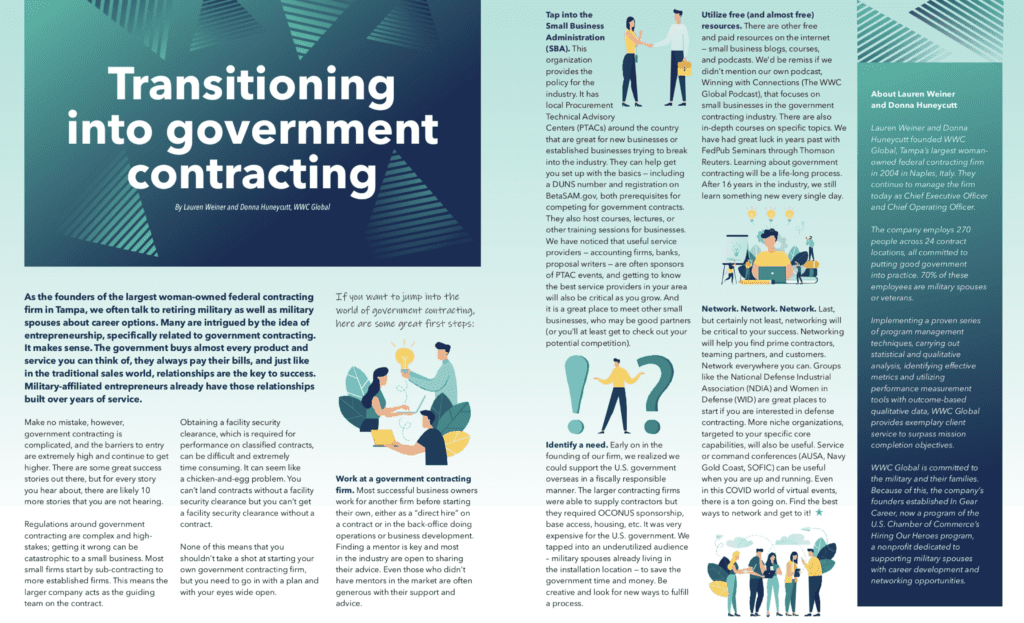
Work at a government contracting firm.
Most successful business owners work for another firm before starting their own, either as a “direct hire” on a contract or in the back-office doing operations or business development. Finding a mentor is key and most in the industry are open to sharing their advice. Even those who didn’t have mentors in the market are often generous with their support and advice.
Tap into the Small Business Administration (SBA).
This organization provides the policy for the industry. It has local Procurement Technical Advisory Centers (PTACs) around the country that are great for new businesses or established businesses trying to break into the industry. They can help get you set up with the basics — including a DUNS number and registration on BetaSAM.gov, both prerequisites for competing for government contracts. They also host courses, lectures, or other training sessions for businesses. We have noticed that useful service providers — accounting firms, banks, proposal writers — are often sponsors of PTAC events, and getting to know the best service providers in your area will also be critical as you grow. And it is a great place to meet other small businesses, who may be good partners (or you’ll at least get to check out your potential competition).
Identify a need.
Early on in the founding of our firm, we realized we could support the U.S. government overseas in a fiscally responsible manner. The larger contracting firms were able to supply contractors but they required OCONUS sponsorship, base access, housing, etc. It was very expensive for the U.S. government. We tapped into an underutilized audience – military spouses already living in the installation location — to save the government time and money. Be creative and look for new ways to fulfill a process.
Utilize free (and almost free) resources.
There are other free and paid resources on the internet — small business blogs, courses, and podcasts. We’d be remiss if we didn’t mention our own podcast, Winning with Connections (The WWC Global Podcast), that focuses on small businesses in the government contracting industry. There are also in-depth courses on specific topics. We have had great luck in years past with FedPub Seminars through Thomson Reuters. Learning about government contracting will be a life-long process. After 16 years in the industry, we still learn something new every single day.
Network. Network. Network.
Last, but certainly not least, networking will be critical to your success. Networking will help you find prime contractors, teaming partners, and customers. Network everywhere you can. Groups like the National Defense Industrial Association (NDIA) and Women in Defense (WID) are great places to start if you are interested in defense contracting. More niche organizations, targeted to your specific core capabilities, will also be useful. Service or command conferences (AUSA, Navy Gold Coast, SOFIC) can be useful when you are up and running. Even in this COVID world of virtual events, there is a ton going on. Find the best ways to network and get to it!
About Lauren Weiner and Donna Huneycutt
Lauren Weiner and Donna Huneycutt founded WWC Global, Tampa’s largest woman-owned federal contracting firm in 2004 in Naples, Italy. They continue to manage the firm today as Chief Executive Officer and Chief Operating Officer.
The company employs 270 people across 24 contract locations, all committed to putting good government into practice. 70% of these employees are military spouses or veterans.
Implementing a proven series of program management techniques, carrying out statistical and qualitative analysis, identifying effective metrics and utilizing performance measurement tools with outcome-based qualitative data, WWC Global provides exemplary client service to surpass mission completion objectives.
WWC Global is committed to the military and their families. Because of this, the company’s founders established In Gear Career, now a program of the U.S. Chamber of Commerce’s Hiring Our Heroes program, a nonprofit dedicated to supporting military spouses with career development and networking opportunities.
YOU MAY ALSO LIKE
MIC Updates
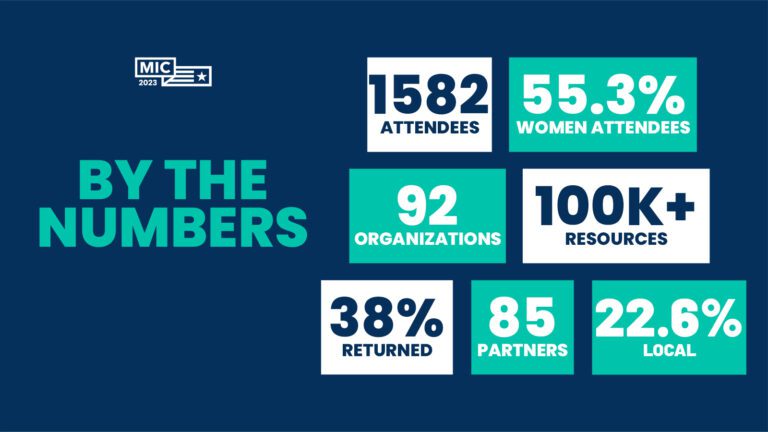
Behind The Numbers Of MIC 2023




